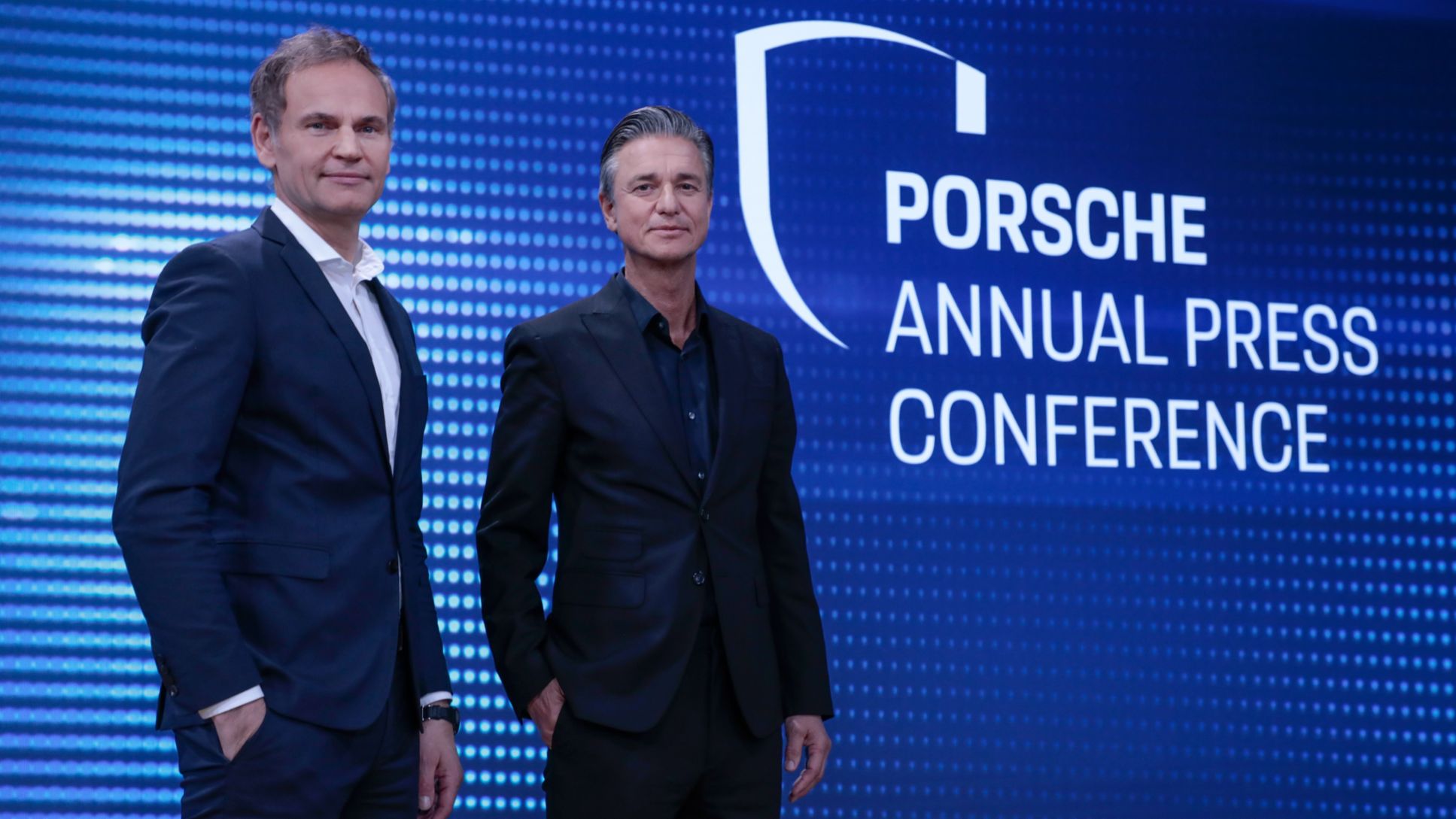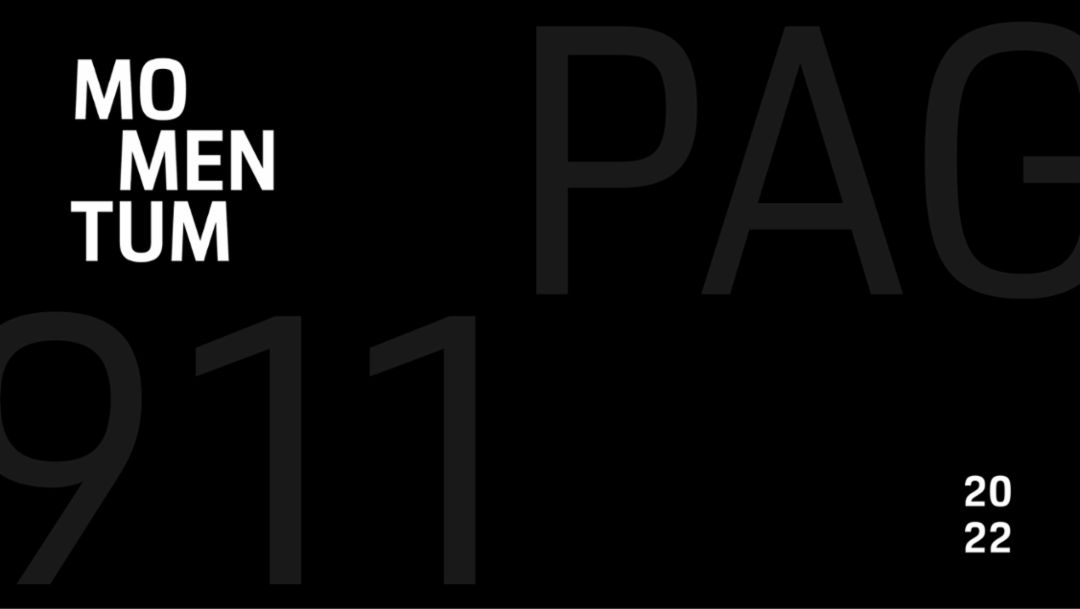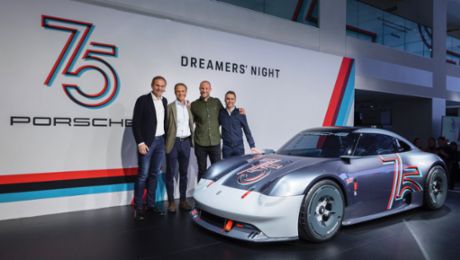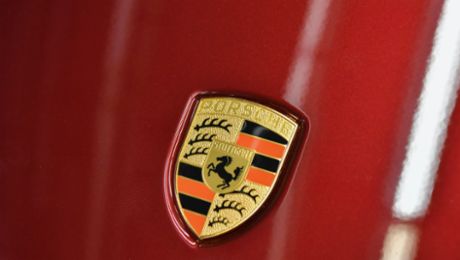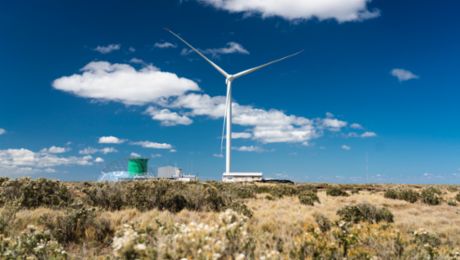Group sales revenue in 2022 amounted to 37.6 billion euros, corresponding to growth of 13.6 per cent (2021: 33.1 billion euros). The Group operating profit was 6.8 billion euros, exceeding the previous year’s figure by 1.5 billion euros (an increase of 27.4 per cent). Group Deliveries and automotive net cash flow also reached new all-time highs in 2022. The Group operating return on sales rose from 16.0 per cent to 18.0 per cent. This year, the Stuttgart sports car manufacturer is pushing its strategy of modern luxury forward and has started its ambitious Road to 20 programme to ensure its long-term profit goal.
“In difficult conditions, we achieved the strongest result in the history of Porsche, by some distance,” says Oliver Blume, Chairman of the Executive Board, as he looks back with satisfaction. “We were also able to offer our customers exciting new products yet again in 2022. This is the result of a great team performance.”
Porsche AG has well-filled order books and was able to deliver 309,884 vehicles to customers in the previous year, despite the effects of the war in Ukraine, the challenges of the coronavirus pandemic, and global supply chain disruptions. This corresponds to an increase of 2.6 per cent compared to 2021 (301,915 vehicles). In the 2022 financial year, automotive net cashflow increased from 3.7 billion euros to 3.9 billion euros. “Our success factors are improved price positioning, the strong product mix, the increase in vehicle sales, exchange rate effects, and our strict cost discipline,” says Lutz Meschke, Deputy Chairman and Member of the Executive Board for Finance and IT.
Road to 20 makes Porsche more resilient and the brand even stronger
The Porsche team continues to set itself high targets for the future. In 2023, the company started its ambitious Road to 20 programme, with which Porsche is aiming for a Group operating return on sales of more than 20 per cent in the long term. “With the Road to 20 we are making Porsche even more resilient and our brand stronger than ever,” says Meschke. “And we’re going to take a fresh look at everything, from our product range and pricing to our cost structure. We want to increase the quality of our contribution margins and make our products even more attractive.” The Road to 20 programme is the continuation of the successful Profitability Programme 2025, with which Porsche made itself more resistant to crises in previous years.
From this position of strength, the sports car manufacturer heralded a new era on 29 September 2022 with the biggest IPO in Europe (in terms of market capitalisation). “We can now become even more focused and pick up even more speed,” continues Meschke. “The newly attained autonomy gives us additional entrepreneurial freedom. We will strengthen specific capabilities in key areas such as software and battery technology.”
Porsche focuses on limited editions and expands Sonderwunsch programme
Porsche continues to push forward its strategy of modern luxury. According to the Luxury & Premium Report of the consulting firm Brand Finance, Porsche is the most valuable luxury brand in the world. “We combine an outstanding product with a highly personal experience. With a brand that takes responsibility within society,” says Oliver Blume. “We are expanding our product portfolio with new sports car concepts. We will also continue to focus on limited editions and expand our Sonderwunsch programme in the future. We want to accommodate the desires and lifestyle of our customers even more than we do already, exceeding their expectations time and again.”
Ambitious electric strategy with the all-electric Cayenne
At the same time, Porsche wants to continue with its ambitious electrification strategy. The all-electric Macan has reached the home straight and will be available to customers in 2024. The all-electric 718 is planned for the middle of the decade. In the medium term it will only be available as an all-electric model. It will be followed by the all-electric Cayenne. The fourth generation of the SUV will underline Porsche’s goal of delivering more than 80 per cent of its new vehicles as all-electric models in 2030.
Porsche is also planning to expand its product portfolio upwards with an all-electric SUV positioned above the Cayenne. This new vehicle concept is designed to offer strong performance and automated driving functions with the typical Porsche flyline, along with a completely new experience inside the vehicle. This will be based on the platform SSP Sport developed by Porsche. “We are thereby underlining and strengthening our sporty luxury positioning. We are observing growing profit pools in this segment, in particular in China and the US,” explains Blume.
During 2023, the Cayenne is already set to undergo one of the most comprehensive upgrades in the history of Porsche. The updates to the third-generation model include three further-developed plug-in hybrids with greater ranges. Thanks to a new chassis, there will also be an even wider breadth of abilities, balancing the on-road performance for which Porsche is famous, long-distance comfort and off-road capability.
Porsche has also set itself ambitious sustainability targets. Within the scope of its strategy, the company is working towards a net carbon neutral value chain for its vehicles in 2030. This also includes a net carbon-neutral use phase for future BEV models (based on an assumed total mileage of 200,000 kilometres per vehicle).
In 2022, Porsche also set up an e-fuels pilot plant with partners in Chile. Production has been running since December. “With this, we have demonstrated that e-fuels can be produced on an industrial scale,” says Blume.
Sajjad Khan will take over the new Car-IT department in 2023
The Porsche IT team is due to get a significant boost in 2023. Sajjad Khan will be joining and assuming responsibility for the new Car-IT Executive Board department. “We are delighted that in Sajjad Khan we have been successful in winning over an experienced and incredibly connected expert for Porsche,” says Blume. “Together we will implement our strategy for the Car-IT department effectively and with the focus on our customers.”
In 2022, Porsche took a further step forward in its digitalisation. The expertise of Porsche Digital, MHP and Porsche IT were combined to create the agile Digital Family unit. “They now work together even more closely, enabling us to push the transformation process forward with greater focus,” says Meschke. “And we’re a more attractive employer for IT experts than ever before. At Porsche, software specialists can work together with the tech giants of the world – on vehicles that are desired around the globe.”
Executive Board proposes dividend of 1.01 euros per preferred share
Since the successful IPO, Porsche shares have progressed positively. Just 81 days after starting on the stock market it was incorporated into the German DAX stock market index via its fast entry procedure. The share price rose from the offer price of 82.50 euros to 114 euros (as of 28 February 2023)1. This corresponds to a market capitalisation of 108 billion euros2. “The capital market has acknowledged our strong position as a performance-focused and independent luxury brand,” says Meschke. “At the same time, we are also able to selectively exploit synergies with the Volkswagen Group. Something from which our shareholders also benefit.” In the financial year of 2022, the earnings per ordinary share were 5.43 euros and the earnings per preferred share were 5.44 euros. For the 2022 financial year, the Executive Board is proposing to the annual general meeting a dividend payment of 911 million euros. Adding in the additional dividends of five million euros for the preferred shares, the total sum is 916 million euros. This corresponds to 1.00 euro per ordinary share and 1.01 euros per preferred share.
Porsche confirms medium- and long-term targets
Porsche AG confirms its medium- and long-term targets. “Should the economically challenging conditions not further intensify significantly, we expect a Group operating return on sales for the 2023 financial year in the range of 17 to 19 per cent,” says Meschke. This guidance is based on Group sales revenue in the range of around 40 to 42 billion euros. Meschke: “In the long run, we are aiming for a Group operating return on sales of more than 20 per cent.”
In 2023, Porsche has two reasons to celebrate: 75 years of Porsche sports cars and 60 years of the 911. In June, the sports car manufacturer is making its comeback at the 24 Hours of Le Mans. On the 100th anniversary of the classic race, Porsche will once again be fighting for overall victory with the newly developed Porsche 963.
|
Porsche AG Konzern |
|||
| FY 2022 | FY 2021 | Change | |
| Deliveries | 309,884 | 301,915 | +2.6% |
| Sales Revenue | € 37,630 mn | € 33,138 mn | +13,6% |
| Operating profit | € 6,770 mn | € 5,314 mn | +27,4% |
| Operating return on sales | 18.0% | 16.0% | |
| Automotive net cash flow | € 3,866 mn | € 3,676 mn | +5,2% |
1) Source: Frankfurt Stock Exchange https://www.boerse-frankfurt.de/equity/porsche-ag-vz
2) Market capitalisation based on 455.5 million preferred shares (PAG911) with a closing price of 114.0 euros on Xetra on 28/02/2023 and 455.5 million ordinary shares (PAG356) with a premium of 7.5 % (comp. to PAG911)
Disclaimer
This press release contains forward-looking statements and information that reflect Dr. Ing. h.c. F. Porsche AG's current views about future events. These statements are subject to many risks, uncertainties, and assumptions. They are based on assumptions relating to the development of the economic, political, and legal environment in individual countries, economic regions, and markets, and in particular for the automotive industry, which we have made on the basis of the information available to us and which we consider to be realistic at the time of publication. If any of these risks and uncertainties materializes or if the assumptions underlying any of the forward-looking statements prove to be incorrect, the actual results may be materially different from those Porsche AG expresses or implies by such statements. Forward-looking statements in this press release are based solely on the circumstances at the date of publication.
We do not update forward-looking statements retrospectively. Such statements are valid on the date of publication and can be superseded.
This information does not constitute an offer to exchange or sell or an offer to exchange or buy any securities.
